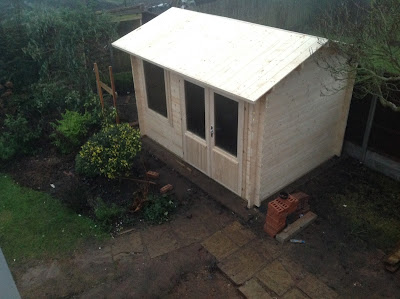Johann claimed knowledge in a number of skills, indeed he went out of his way to try to learn as much as he could about every known trade in existence in his time. How much skill in each craft he actually acquired is impossible to know, but he does claim to have been a quick learner. Although it takes years to develop fully all the skills required in each trade - and particularly in those days, skilled craftsmen had to work through apprenticeships lasting several years - he only wanted to discover enough about each craft to understand what material and what tools were used and how they might answer his needs. Consequently he travelled widely searching for design ideas as well as tools and methods of construction. His claimed list of knowledge about various crafts can be seen as below.
His proudest claim seems to be that he could be called a Cleric, a Doctor and finally a Mathematician, but I'm certain these were self-granted titles to demonstrate his assessment of his personal talents.
In his Apologia Poetica he described how he studied mechanics, and ruthlessly picked the brains of anyone who might be of use. He "toiled endlessly at his creations, sculpting, grinding glass, smelting, casting and turning. Sculpting provided a range of unique tools, and even grinding glass might require some special revolving holding device. Smelting and casting could provide for the manufacture of lead and brass weights and turning can apply to both brass-work as well as wood.
He acquired skills in clock-making, glass-blowing, painting pictures and copper-engraving. He learned the art of enamelling and wax-modelling. He became knowledgeable about astronomy, and the surveying of woods, meadows and fields. He worked with gunpowder and constructed guns, claiming that he was a good shot himself. He studied music and learned to play some instruments. Clearly he did have some knowledge of music as can be seen in his design for a carillon for which he even included a musical score.
His teacher, Christian Weise, aimed to prepare his students for employment at the court or municipal offices and as such he gave them the tools to achieve these positions, hence the odd selection of skills he deemed apt.
Was there no end to this man's accomplishments? Apparently not. He became temporarily apprenticed to an Apothecary and learned some medicine and several cures. I believe that he used one of these cures to cure the mayor of Annaberg's daughter, Barbara whom he subsequently married.
It seems that during his travels he picked up a smattering of several languages - he seem to have had some aptitude in such things - and during an extended visit to Prague became acquainted with a Jesuit priest and Jewish rabbi who taught him somee Hebrew, and ancient hieroglyphics, plus "the language of nature and the writings of angels".
Later in Dresden he pretended that he was an apprentice miller and picked up their milling jargon. In the process he learned much about their techniques such as whetting millstones and replacing their bearings.
The final and perhaps most useful craft he chose to examine was that of the church organ maker, and for this he turned to a relative who was an artist, organ-maker and turner. The organ of that period was probably the largest and most complex machine ever constructed to that time. There was an organ that was in the Invalidenhaus chapel in Karlshafen, which was said to have been built by Bessler. The chapel was used by the evangelical community until they had their own church built at Karlshafen in 1960. At which point the organ was donated to the new church - St. Stephanus Church. A new organ was built by Werner Bosch in 1963 incorporating all the usable pipes from the old Invalidenhaus organ. So it seems the old Bessler organ was destroyed to make the new one! Perhaps they kept the rest of the old parts somewhere?
It seems as though Bessler set himself on this path before he actually had an aim in mind and it might indicate a natural curiosity about all these subjects. His former headmaster, Christian Weise, has an excellent reputation both as a teacher, administrator and playwright and interestingly he has stated that Bessler was his star pupil.
So one would think that if anybody was going to solve the problem of designing and building a perpetual motion machine it would be Johann Bessler - and he did.
PS I almost forgot his ability to speak, write and compose poetry in both German and Latin.
PS I almost forgot his ability to speak, write and compose poetry in both German and Latin.
JC

















